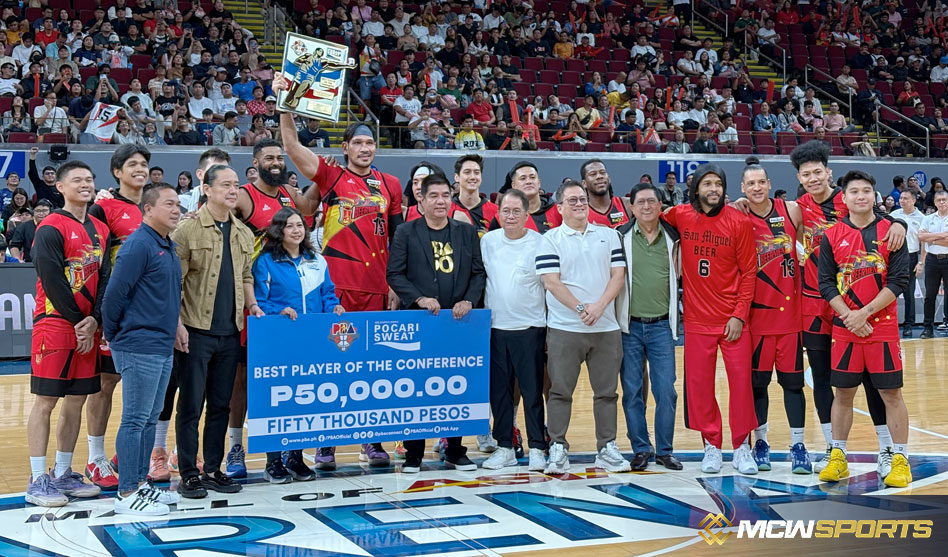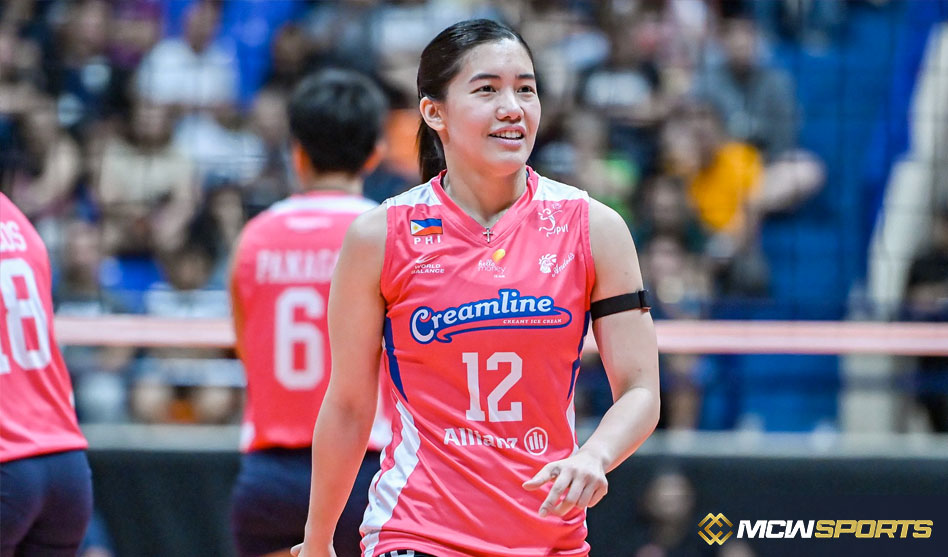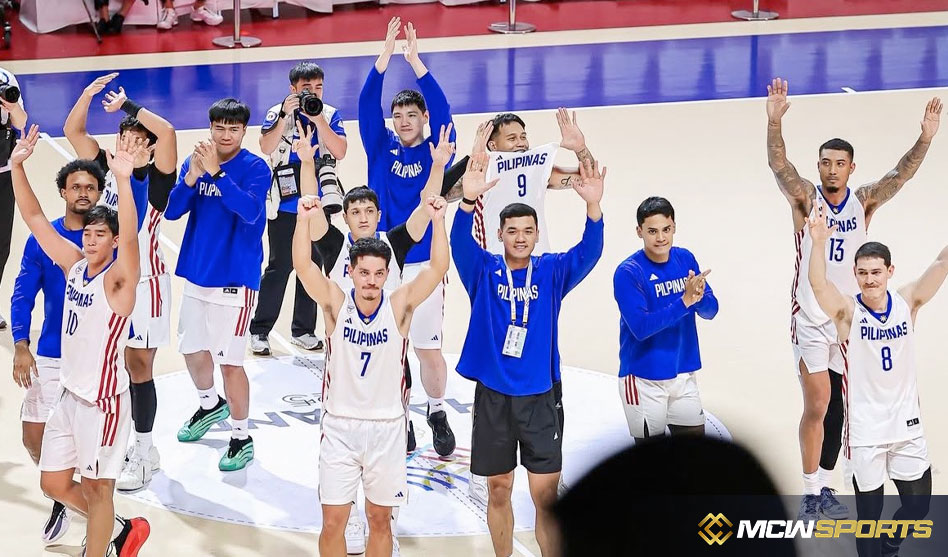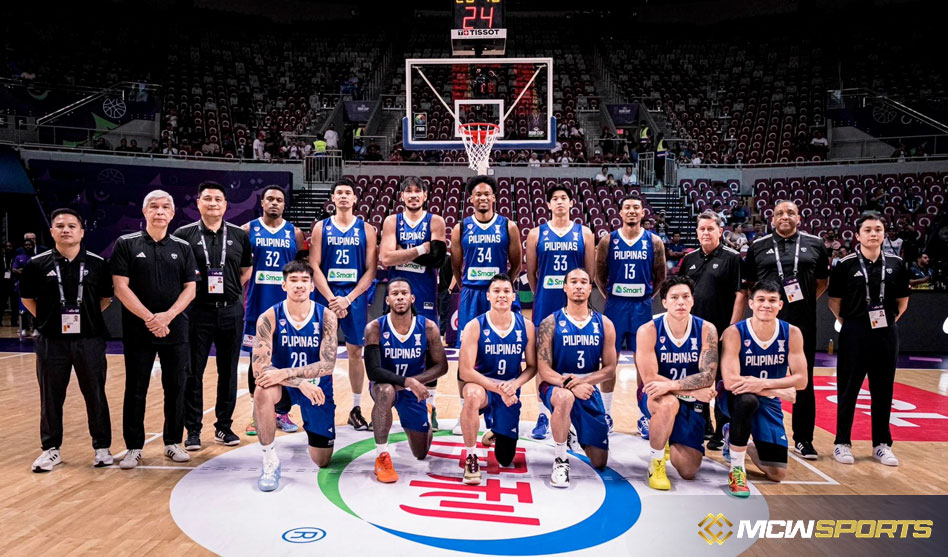MANILA, Philippines – Following the team’s runner-up result in the PBA Philippine Cup finals, San Miguel Beermen star June Mar Fajardo has turned reflection into drive. San Miguel won many conference crowns this season, but missing the Grand Slam heightened internal standards, prompting Fajardo to see second place as a springboard for future success.
Leading San Miguel through a tough best-of-seven finals series against TNT Tropang-5G, Fajardo is considered the league’s top big man. While he won the Best Player of the Conference and Finals MVP awards during the Beermen’s championship run, he acknowledged that a runner-up trophy in a hypothetical Grand Slam remains unfulfilled. He claimed that sign reminds him to keep pushing boundaries and never get complacent.
Fajardo was dominant all season in scoring, rebounding, and inside defense. He defined San Miguel as a team of size, intelligence, and championships. His influence went beyond numbers, altering opponent game plans, requiring double-teams, and creating opportunities for teammates like Jericho Cruz, CJ Perez, Don Trollano, and Moala Tautuaa.
Fajardo celebrated the Philippine Cup win, but the goal was a three-conference sweep. The failure to complete the Grand Slam threw a shadow over the achievement. Team goals are more important than individual rewards, according to Fajardo. The runner-up trophy represents unfulfilled aspirations, in his opinion.
After the finals, Beermen locker room mates were relieved and determined. Fajardo noted that players proudly opened the Philippine Cup trophy but immediately focused on restoring dominance on all fronts. The runner-up insignia is a reflection of the difference between expectations and perfection, not a consolation.
Coach Leo Austria agrees. His system relied on intensity, adaptability, and teamwork. Austria saw possibilities to tighten rotations, improve defensive communication, and speed up the game while the Beermen won. Fajardo’s leadership as team captain promoted self-criticism and openness.
San Miguel’s Philippine Cup triumph relied on veteran leadership, depth, and high expectations. Fajardo’s recognition of the runner-up prize reflects the aspirational nature of culture. His drive is frustrated with anything less than complete dominance. Being a runner-up raises the standard for summer training, pre-season drills, and team bonding, all elements of forward momentum.
San Miguel was dangerous throughout the series, but Fajardo says even champions can learn from close calls. Tropang 5G fought bravely despite injuries, putting pressure on Games 5 and 6. Fajardo believes resistance points revealed opportunities for improvement, notably in late-game defensive positioning and closing sequences. Such experiences energize rather than define the effort.
The franchise’s success drives Fajardo’s long-term focus. He sees San Miguel as a dynasty transcending seasons and prizes via accountability. In the next chapter, the runner-up sign serves as an ignition point, not a setback. It upholds the idea that past success must lead to future success.
Missing a Grand Slam hurts emotionally. The disappointment has affected offseason planning. Strength and conditioning regimens prioritize recovery and durability. In tactical sessions, high-pressure scenarios with unequal minutes will be simulated. Fajardo will model preparation, recuperation discipline, and accountability throughout.
Public statements by club management and coaching staff portray the runner-up finish as a step towards sustained greatness, not defeat. Fajardo’s view supports it. He values team success over personal honors; the Finals MVP and BPC awards are meaningful, but excellence is continual.
For Beermen fans, the Philippine Cup win confirmed their dominance, while the runner-up symbol fueled enthusiasm for future campaigns. Fajardo anticipates more confident supporter enthusiasm at future summits. He expects community demands to match internal expectations: to win repeatedly and pursue titles relentlessly.
Fajardo is poised for success. Without injuries and sharpened by a tough finals, he enters the offseason camps ready. The common goal—reclaiming supremacy in subsequent tournaments, tightening margins, and removing unwanted ambition—is more important to him.
June Mar Fajardo sees her runner-up performance as a growth opportunity, not a flaw. He would rather the symbol inspire focus, discipline, and hunger than lower team pride. Despite the case, the ambition to win the Philippine Cup remains, believing no award is really earned until it’s won again.
With that mindset, Fajardo leads as a dominant performer and a legacy keeper. The runner-up emblem is not the end of his tale, but rather a catalyst for pursuing success at both personal and franchise levels.

 English
English










